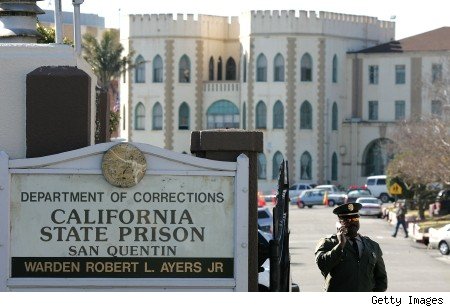 By Natasha Minsker
By Natasha Minsker
Editor’s Note: Next week the death penalty trial opens for Marco Topete and they will begin a process known as death qualifying the jury. The ACLU of Northern California’s Death Penalty expert Natasha Minsker discusses what that means and the implications of it.
The right to be tried by a jury of your peers is a basic right in America. It is one of the innovations enshrined in our Constitution that sets our nation apart from most of the rest of the world. While most of us dread being called for jury service, we know that if it was us who stood accused of a crime, we would want to be judged by a cross-section of our community, not a government official in a black robe.
Anyone who has been called for jury service in a death penalty case has experienced firsthand the process judges and lawyers call “death qualification,” the process of interviewing prospective jurors on their views about the death penalty to determine if they are “qualified” to serve. Many people have shared with me their own stories, particularly how humiliated they felt when the judge told them their opinions made them “unfit” to serve.
Because many people who oppose the death penalty do so because of deeply held religious beliefs, the result of the death qualification process is that many people of faith are prohibited from serving in death penalty cases. The Catholic Church’s position that the death penalty is inconsistent with the Church’s culture of life means that many Catholics are viewed with suspicion by prosecutors and judges in death penalty cases and are more likely to be excluded. In one California death penalty case, the prosecutor later testified that it was routine practice in his office to remove Jews from death penalty juries and a judge had even advised him to do so, because so many Jewish people are reluctant to impose the death penalty.
This flagrant bias in the selection of jurors pales in comparison to its impact on justice. Research shows that our prejudiced “qualification” process produces juries that are more likely to convict. Prospective jurors who make the cut to serve are more likely to believe prosecution witnesses and less likely to ask probing questions. As a result, many researchers believe innocent people are actually more likely to be wrongfully convicted in a death penalty case. Indeed, 138 innocent people have been freed from death rows in the US. Others are not so lucky. Cameron Todd Willingham was wrongfully convicted and executed in Texas for a fire, incorrectly labeled “arson,” that killed his children. Now experts agree the fire was in fact an accident.
Jurors who are pre-selected in this way are also more likely to sentence someone to death. That is after all the point of the current qualification system. But it’s not just that all the people with moral qualms about the death penalty have been removed from the jury. The prospective jurors left after death qualification are more likely to view evidence as “aggravating,” meaning it supports sentencing the person to death, and less likely to view the same evidence as “mitigating,” meaning it supports imposing a sentence of life without possibility of parole instead. Death qualified jurors view the facts and the evidence differently than do the jurors excluded from serving, differently in a way that favors the prosecution across the board.
When retired Supreme Court Justice John Paul Stevens recently concluded that the death penalty in America is unjust and should be replaced, he pointed to the death qualification process as one of the main reasons. Justice Stevens said that if we are going to have the death penalty, then the jury which decides the defendant’s fate should be drawn from a true cross-section of the community, not one tilted towards conviction. Better yet, Justice Stevens concluded, we should simply replace the death penalty with life without possibility of parole and end death qualification altogether.
In California, if we replace the death penalty with life without possibility of parole, we will save $1 billion in five years. Every part of the death penalty process is more expensive, from the trials that cost the county millions, to death row housing which is costing the state hundreds of millions. Our distorted qualification process for prospective jurors is one reason death penalty trials are so much more expensive. Hundreds more jurors must be called in death penalty cases, because so many will be disqualified, and the process often takes months of court time.
If prosecutors instead seek life without possibility of parole, they can ensure the safety of the community while ensuring swift and certain justice to the families of murder victims. They can also put an end to the unfair and costly process of tilting juries toward the death penalty and away from justice.
Natasha Minsker is the director of the ACLU of Northern California’s Death Penalty Policy program.





ACLU: “Today, in some California trials, that means nearly 40% of prospective jurors are excluded simply because of their qualms about the death penalty.”
for the obvious reason – you do not want someone basing their judgment on guilt or innocence on disagreements over the death penalty.
“The Catholic Church’s position that the death penalty is inconsistent with the Church’s culture of life means that many Catholics are viewed with suspicion by prosecutors and judges in death penalty cases and are more likely to be excluded.”
LOL!! since when did the ACLU ever care about the religious convictons of Catholics?
ACLU: “Research shows that our prejudiced “qualification” process produces juries that are more likely to convict.”
who’s research? You cannot just do a drive by here, cite the source.
ACLU: “As a result, many researchers believe innocent people are actually more likely to be wrongfully convicted in a death penalty case.”
another drive by. cite the source.
ACLU: “They can also put an end to the unfair and costly process of tilting juries toward the death penalty and away from justice.”
I have a problem with this statement, it implies the death penalty doesn’t meet out justice. The Death penalty does not meet out justice in some cases: people who are wrongfully convicted. But others are rightfully convicted, and are sentenced to death for heinous crimes i.e. Timothy McVeigh. Is the ACLU claiming that McVeigh didn’t deserve what he got?
“for the obvious reason – you do not want someone basing their judgment on guilt or innocence on disagreements over the death penalty. “
The problem is then you have a group of jurors who are much more likely to convict which sets up a whole host of other problems incarcerating innocent people.
[quote]A death penalty opponent who is morally opposed to the death penalty in all case would say that the state does not have the right to put anyone to death. I believe that is the ACLU’s position. It is my position. [/quote]OK… let me get this correct… Mr Qaddafi (yes, I know the spelling varies), his mercenaries, minions, etc., when they decide/act to cut down civilians with machine guns, bombs, etc. should rest assured that no matter what, if they do not prevail, the worst that can happen to them is that they will be imprisoned for life, be fed, get medical treatment, all at no cost to themselves nor their families, but at the expense of society? By the logic of the concept of “the state” should not exact the death penalty, was every soldier in either the European or Pacific theater of WW2 morally wrong and/or culpable (to serve life without the possibility of parole) for allowing themselves to be sent into a situation by the “state” where they killed others for their or their state’s crimes?
I’m not going to get into the logic of war. It’s too far afield. I’ll leave it at: I don’t think war and the criminal justice system are not the same things.
What about when the war ends, and the perpetrators are in the custody of the state? I believe that is on-topic…
This statement is incorrect: “Cameron Todd Willingham was wrongfully convicted and executed in Texas for a fire, incorrectly labeled “arson,” that killed his children. Now experts agree the fire was in fact an accident.” Willingham MAY have been wrongfully convicted…see: http://en.wikipedia.org/wiki/Cameron_Todd_Willingham
nm: “When retired Supreme Court Justice John Paul Stevens recently concluded that the death penalty in America is unjust and should be replaced, he pointed to the death qualification process as one of the main reasons. Justice Stevens said that if we are going to have the death penalty, then the jury which decides the defendant’s fate should be drawn from a true cross-section of the community, not one tilted towards conviction. Better yet, Justice Stevens concluded, we should simply replace the death penalty with life without possibility of parole and end death qualification altogether.”
Point well taken. I knew that those with moral convictions (pardon the pun) that do not allow them to approve the death penalty were kept off juries, but I don’t think I ever connected that issue with the idea that such a practice would keep specific people of faith off juries and therefore skew the results toward conviction. Just one more in a myriad of reasons to do away w the death penalty.
To hpierce: I understand the emotion behind what you are saying, and sympathized to some degree. However, enemies killed in battle were not U.S. citizens, and thus do not have the same rights and privileges as U.S. citizens – such as the right to a fair trial, right to face the accuser, right against cruel and unusual punishment, etc. It makes the analogy of war versus criminal courts and the death penalty a comparison of apples to oranges.
The more appropriate argument is citing a killer like Timothy McVeigh, and asking the question “Did he not deserve the death penalty?”. I would say, “Yes indeedy”, but it doesn’t take away from the fact that too many innocent people are being found guilty bc our criminal justice system has so many flaws in it. It is more a question of how troubled are you that we may be convicting and killing too many innocent people, just to make sure a few heinous villians “get what they deserve”? There is no one right answer here, it is really a question of societal values…
“A death penalty opponent who is morally opposed to the death penalty in all case would say that the state does not have the right to put anyone to death. I believe that is the ACLU’s position. It is my position.”
which is precisely why neither you nor anyone on the ACLU should be able to serve on a death penalty case. You are supposed to determine guilt or innocence of the client. that decision of guilt or innocence should not be dependent on moral convictions against the death penalty.
I understand your point, but in solving that problem, you create another larger problem, and that is you produce a jury that is far more likely to convict, regardless of the facts of the case and probably has contributed to the problems you acknowledge innocent people facing the death penalty.
“What about when the war ends, and the perpetrators are in the custody of the state? I believe that is on-topic… “
What about it? Then it is a criminal situation, and they are subject to the laws of the land.
“I understand your point, but in solving that problem, you create another larger problem, and that is you produce a jury that is far more likely to convict, regardless of the facts of the case and probably has contributed to the problems you acknowledge innocent people facing the death penalty.”
“and that is you produce a jury that is far more likely to convict”
that is according to Natasha Minsker, and she bases that conclusion according to unnamed research she never cites.
It really did not take much to find the research on this which is actually rather overwhelming:
[quote] The Risks of Death: Why Erroneous Convictions Are Common in Capital Cases by Samuel Gross, 44 Buffalo L. Rev. 469, 494 (1996)
Page 494:
Death Qualification. In capital cases, juries decide the sentence as well as determine guilt or innocence. As a result, the jury selection process includes a unique procedure, “death qualification,” that is designed to ensure that the jury is qualified for the sentence phase. Most jurors who are strongly opposed to the death penalty, and some who are strongly in favor, are excluded at the outset. fn 108 Many studies have shown that these exclusions make the jury more likely to convict. fn 109 In addition, the process of question- ing jurors about their willingness to impose the death penalty before the defendant has been convicted tends to create the impression that guilt is a foregone conclusion, and the only real issue is punishment. fn 110
fn 109 (some studies)
Claudia L. Cowan et al., The Effects of Death Qualification on Jurors’ Predisposition to Convict and on the Quality of Deliberation, 8 LAW & HUM. BEHAV. 53 (1984);
Robert Fitzgerald & Phoebe C. Ellsworth, Due Process v. Crime Control: Death Qualification and Jury Attitudes, 8 LAW & HUM. BEHAV. 31 (1984).
See generally Hovey v. Superior Court, 616 P.2d 1301, 1315-1341 (Cal. 1980) and studies cited therein;
see also Grigsby v. Mabry, 569 F. Supp. 1273 (E.D. Ark. 1983), aff’d 758 F.2d 226 (8th Cir. 1985) (en banc), rev’d sub nom Lockhart v. McCree, 476 U.S. 162 (1986).[/quote]